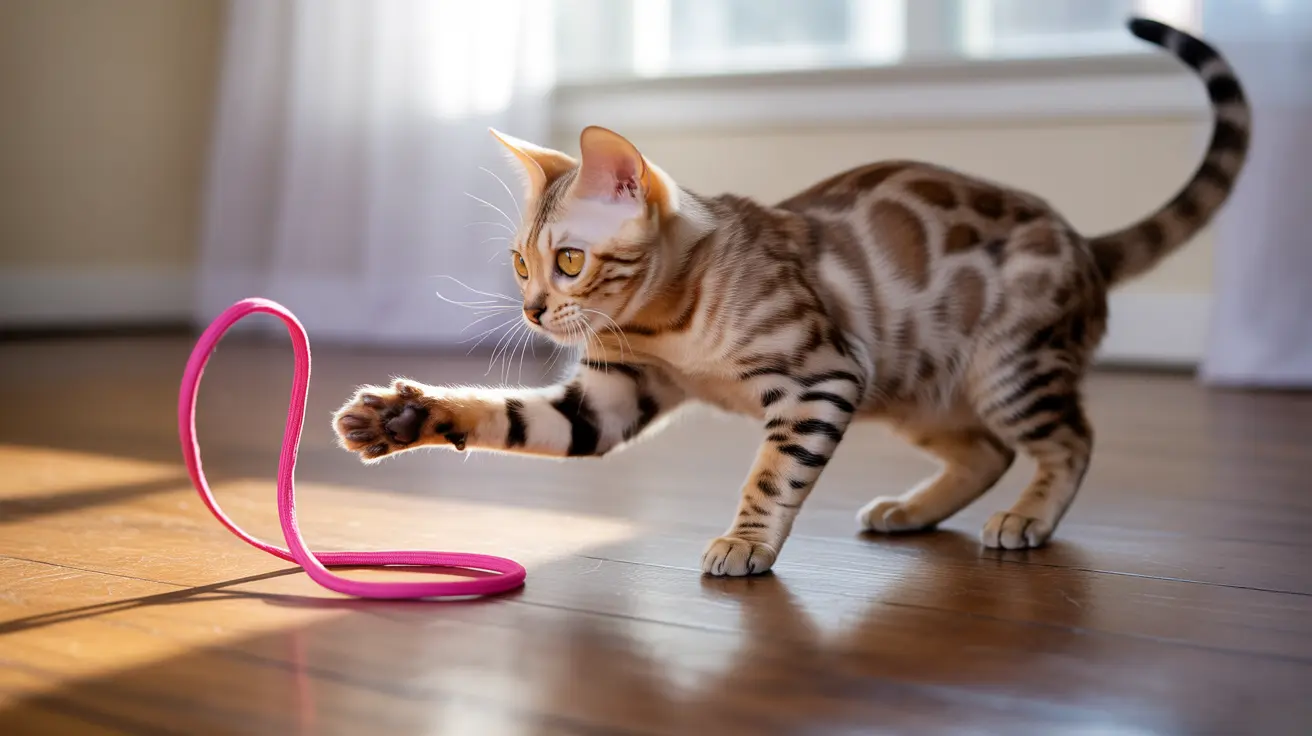If you're a cat owner, you've likely noticed your feline friend's peculiar fascination with hair ties. These simple elastic bands seem to hold an irresistible appeal for cats, often becoming their favorite playthings despite having a houseful of expensive cat toys. But what drives this seemingly universal feline attraction to hair ties?
Let's explore the fascinating science behind this behavior, from instinctual hunting drives to sensory stimulation, while also addressing important safety considerations every cat parent should know.
The Hunting Instinct Connection
Cats are natural-born hunters, and hair ties trigger their predatory instincts in several ways. The springy, unpredictable movement of these elastic bands mimics the erratic motion of small prey like mice or insects. When a hair tie bounces or rolls across the floor, it activates your cat's chase response, causing their pupils to dilate and their body to assume a hunting posture.
The lightweight nature of hair ties makes them perfect for batting, carrying, and tossing – actions that closely replicate a cat's natural hunting sequence in the wild. This similarity to prey behavior makes hair ties particularly engaging for indoor cats who don't have access to natural hunting opportunities.
The Sensory Appeal Factor
Hair ties offer a unique combination of textures and sensations that cats find irresistible. The elastic material provides an interesting mouth-feel when chewed, while the fabric covering offers tactile stimulation for sensitive cat paws. Additionally, hair ties often retain their owner's scent, making them even more appealing to cats who are strongly bonded with their humans.
The subtle sounds produced when cats manipulate hair ties – from gentle rustling to stretching noises – add another layer of sensory engagement that keeps them coming back for more.
Health and Safety Considerations
While cats may love playing with hair ties, these common household items pose significant health risks. Veterinarians frequently report cases of cats requiring emergency surgery after swallowing hair ties, which can cause dangerous intestinal blockages.
- Vomiting or retching
- Loss of appetite
- Lethargy
- Constipation or straining
- Abdominal pain or swelling
Safe Play Alternatives
Instead of hair ties, consider providing your cat with specially designed toys that offer similar appeal but minimize safety risks. Look for:
- Interactive wand toys with elastic elements
- Soft, stretchy cat toys too large to swallow
- Crinkle balls or toys with similar textures
- Spring-loaded toys that satisfy the batting instinct
Frequently Asked Questions
Why do cats like playing with hair ties so much?
Cats are attracted to hair ties because they activate natural hunting instincts through their movement, texture, and size. The combination of springy motion, familiar scents, and satisfying texture makes them particularly appealing to feline sensibilities.
How do hair ties trigger a cat's natural hunting instincts?
Hair ties' unpredictable bouncing and rolling movements mimic small prey animals, triggering a cat's predatory response. The way they can be batted, chased, and captured perfectly simulates natural hunting behavior.
Are hair ties safe for cats to play with or do they pose health risks?
Hair ties pose significant health risks to cats, including choking hazards and potential intestinal blockages if swallowed. These situations often require emergency veterinary intervention and sometimes surgery.
What should I do to keep my cat safe while still letting them enjoy playing with hair ties?
The safest approach is to prevent access to hair ties entirely and provide appropriate toy alternatives. If you must let your cat play with hair ties, supervise them closely and remove the hair ties immediately after play sessions.
What are some safe toy alternatives to hair ties that satisfy a cat's play and chewing urges?
Safe alternatives include specially designed cat toys with similar properties, such as elastic wand toys, crinkle balls, or spring-loaded toys that are too large to swallow. These provide similar sensory satisfaction while minimizing safety risks.
Conclusion
While cats' attraction to hair ties is perfectly natural and understandable from a behavioral perspective, it's crucial to prioritize their safety. By understanding why cats are drawn to these objects and providing appropriate alternatives, you can ensure your feline friend stays both entertained and safe.






